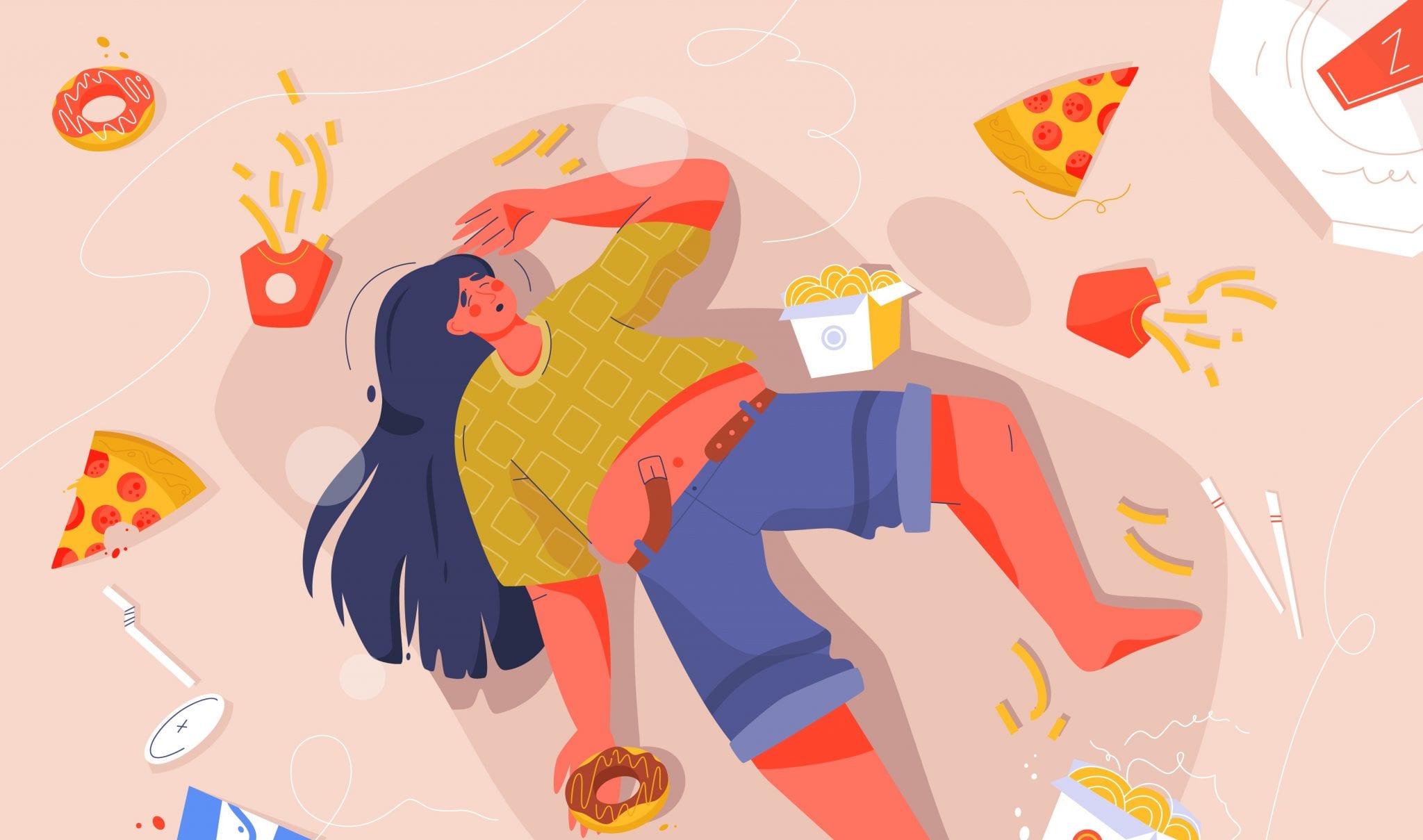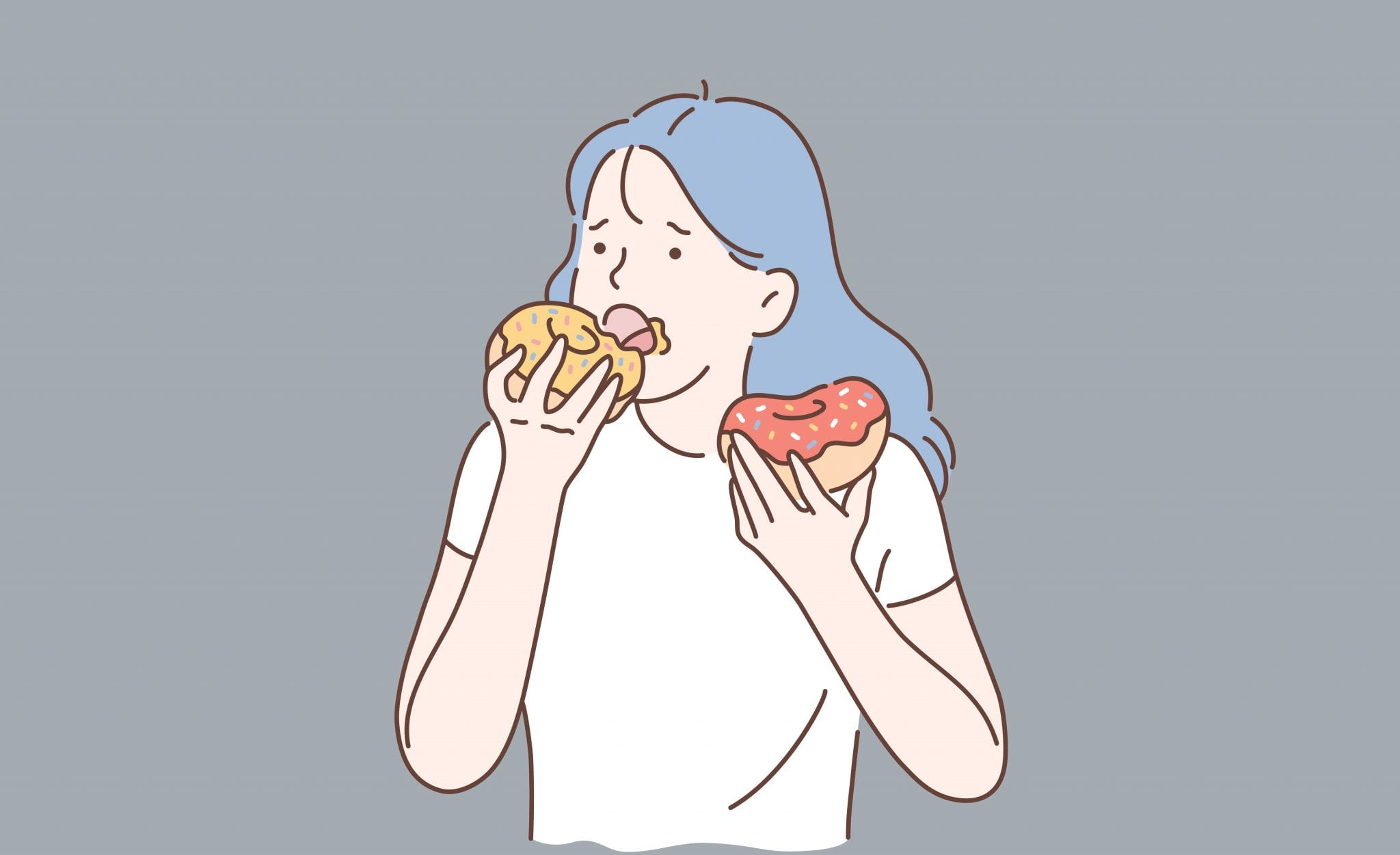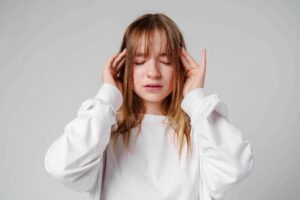The Link Between Anxiety and Overeating
This article has been researched and written by Nayla Daou. AI has not been used in producing this article.
All of us have encountered moments of stress and unease throughout our lives. These feelings of anxiety not only bring about concerns and apprehension but also trigger tangible reactions within our bodies. Naturally, we tend to steer clear of these emotions by engaging in alternative actions like excessive eating. And while it’s true that certain foods can help to reduce anxiety, for people who struggle with overeating, food can become a negative coping mechanism to deal with anxiety.
The impact of stress on appetite
In the short term, stress can decrease appetite. When our body experiences stress, the hypothalamus releases corticotropin-releasing hormone, which suppresses appetite. During periods of anxiety, the brain also sends messages to the adrenal glands which signals the kidneys to create the hormone epinephrine (also known as adrenaline). Epinephrine also helps to temporarily curb one’s appetite.
However, when stress becomes persistent, the adrenal glands release another hormone called cortisol. Commonly called the “stress hormone,” cortisol causes an increase in your heart rate and blood pressure. Food can provide our body with the same type of reward and reaction that cortisol does. Cortisol increases appetite and can ramp up motivation in general, including the motivation to eat. Once a stressful episode is over, cortisol levels should fall, but when the anxiety doesn’t go away, cortisol may stay elevated.

Eating as a coping mechanism
When we become worried, anxious, or stressed out, we can turn to overeating to manage our anxiety without even realizing it. Whether we’re feeling bored, lonely, depressed, or anxious, eating can help to quell our emotions. However, stress eating is hard to stop and hard to control. When left unmanaged it can lead to overeating or binge eating. While this may not make sense on a rational level, binge eating can ease the symptoms and feelings of anxiety. Binge eating involves frequently consuming unusually large amounts of food in one sitting.
One of the most current and well-researched ways of understanding the overlap between anxiety and overeating is through a concept known as Experiential Avoidance. Experiential Avoidance occurs when we don’t want to be aware of or “in touch” with our internal emotions (feelings, thoughts, or sensations). To avoid these internal emotions we take steps to reject, disconnect, deny or avoid those experiences. However, whether we use food or another coping mechanism to try to calm anxious feelings it typically has a negative physical and emotional impact on our physical or emotional health. In relation to using food to deal with anxiety, the desired effect is to suppress, distract, numb, avoid, soothe, or hide the original feelings of anxiety.
Stress and sugar
Stress and anxiety impact food preferences. According to Harvard Health, numerous studies indicate that “physical or emotional distress increases the intake of food high in fat, sugar, or both.” Once ingested, sugar-filled foods tend to inhibit activity in the parts of the brain that produce and process stress and related emotions. So part of our stress-induced cravings for sugary foods have been linked to emotional eating and overeating.

Tips to avoid using food to suppress anxiety
Using food to manage stress, rather than for hunger, is not a healthy long term solution. There are many approaches to lessening the intensity of anxiety, including:
- Psychotherapy with a licensed mental health provider can help to determine the root causes of anxiety and to develop positive coping mechanisms to manage the symptoms associated with anxiety.
- Meditation or mindfulness can help reduce emotional eating for individuals with persistently high stress levels.
- Exercise can reduce cortisol levels. According to research conducted by the University of California, vigorous exercise may have a negative impact on stress levels. However, less intense levels of exercise, such yoga and tai chi, have elements of both exercise and meditation and can help reduce stress levels.
ClearMinds
At ClearMinds Center for Emotional Health, we create custom-tailored treatment plans to help our clients identify, mitigate, and manage anxiety. If you or a loved one are battling with anxiety, or find yourself overeating to cope with stress, we can help.
Contact a member of our team to schedule your appointment today.
Famous People with Dyslexia
Representation matters especially when there is a stigma around dyslexia and learning disabilities in general …
Third Culture Kids: Growing Strong Roots in a Mobile World
In a city like Dubai, it is not unusual to meet a child who has already lived in three countries, attended four different …
What Can I Do If Someone Is Bullying Me at School?
If someone keeps being mean to you, teasing you, hurting you, or leaving you out on purpose, this is called bullying…
Micro-Recovery: TraumaInformed Coping Tools Adults Can Use in Daily Life
Our nervous system is under constant pressure and stimulation. When you add the layer of …
Did You Know – Joyful Memories Can Be a Source of Pain?
I can’t count the number of clients who tell me: “Why does my brain only bring back negative thoughts?” – let’s explore
What Really Happens Behind the Door of Couples Therapy?
Couples don’t usually come to therapy because they stopped caring about each other – they …







